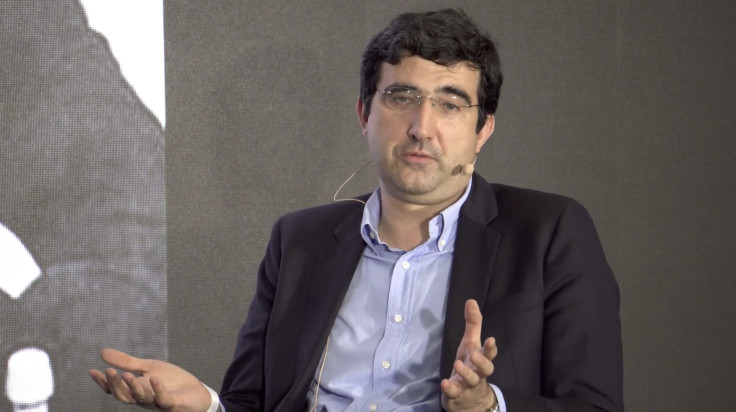'People Don't Think, They Echo': Vladimir Kramnik's Message on Truth and Lies Goes Viral After Filing Complaint Over Death Theats
Former chess champion Vladimir Kramnik files a complaint over death threats as his message ignites debate on truth and online hate.

Former world chess champion Vladimir Kramnik has found himself at the centre of a storm that stretches far beyond the 64 squares of the chessboard. Following a wave of online threats after the death of American grandmaster Daniel Naroditsky, the Russian-born player has not only turned to authorities for protection but also to social media to speak about a deeper moral crisis he sees in digital culture.
From Vladimir Kramnik's Complaints to Controversy
In late October, Kramnik filed a formal complaint with Swiss prosecutors in Geneva, asking them to investigate an escalating series of violent threats. His filing detailed hundreds of abusive messages on social media platforms and via email that called for his death or urged him to harm himself. The harassment is said to have begun shortly after Naroditsky's sudden death at the age of 29, an event that shocked the global chess community.
Kramnik has been living in Switzerland for several years, taking part in tournaments and remaining active in online chess discussions. Yet his outspoken commentary about potential cheating in online competitions has drawn scrutiny and bitterness in equal measure.
His decision last year to publish statistical data on unusually low mistake rates by certain players, a list that included Naroditsky among dozens of others, reignited long-running debates about integrity and technology in modern chess.
Following Naroditsky's death, the International Chess Federation (FIDE) opened a disciplinary review into Kramnik's public remarks, prompting divided reactions among professionals and fans alike.
A Philosopher in a Digital Arena
https://t.co/zKsuryK9ti
— Vladimir Kramnik (@VBkramnik) October 27, 2025
Must watch pic.twitter.com/ZOAebyfvPk
While his legal complaint focuses on safety, Kramnik's public statements have taken on a philosophical tone. Posting on X, he reflected on what he described as a culture of unthinking repetition, writing that people no longer seek truth but rather "echo what suits their bias."
What appeared to begin as a professional dispute has morphed into a global conversation about online mobbing and the psychology of digital outrage. In the immediate days after Naroditsky's passing, posts linking Kramnik to the tragedy multiplied rapidly across platforms.
The scale of hostility, he told Swiss authorities, was "terrifying and systemic." The former world champion claimed that his attempts to raise statistical questions about tournament fairness had been twisted into accusations of personal malice, feeding a digital echo chamber in which reason gave way to emotion.
Despite being a chess player known for his precision and composure, Kramnik now faces an emotional battle that tests a different kind of resilience. In messages later shared online, he insisted that he was sane, safe, and had no intention of self-harm, calling the campaign against him a dangerous example of the consequences of misinformation.
The Future of a Divided Chess World After Daniel Naroditsky's Death

The broader chess community remains unsettled by the affair. Top players, including Magnus Carlsen and Hikaru Nakamura, have publicly denounced Kramnik's earlier insinuations about cheating, while some commentators encourage restraint until investigations are complete.
The death of Naroditsky, a beloved content creator and analyst, has left many grieving and searching for accountability, even as facts remain limited.
FIDE declined to comment on Kramnik's Swiss filing but confirmed that an ethics review is ongoing. For now, Kramnik's own life has become the subject of scrutiny and speculation; in his posts, he accuses others of fuelling hysteria through what he calls deliberate defamation.
In one of his final online messages before stepping back from public interaction, he described receiving violent emails daily and claimed faith that justice and truth would prevail. He requested protection for himself and his family, saying that no human being should face such treatment for asking statistical questions about sport.
The unfolding saga exposes both the fragility of online reputation and the speed with which collective judgment can transform disagreement into persecution. Kramnik, a man once known for his strategic calm, now stands at the intersection of ethics, free speech, and digital hostility, a grandmaster forced into a battle not of logic but of survival.
© Copyright IBTimes 2025. All rights reserved.




















